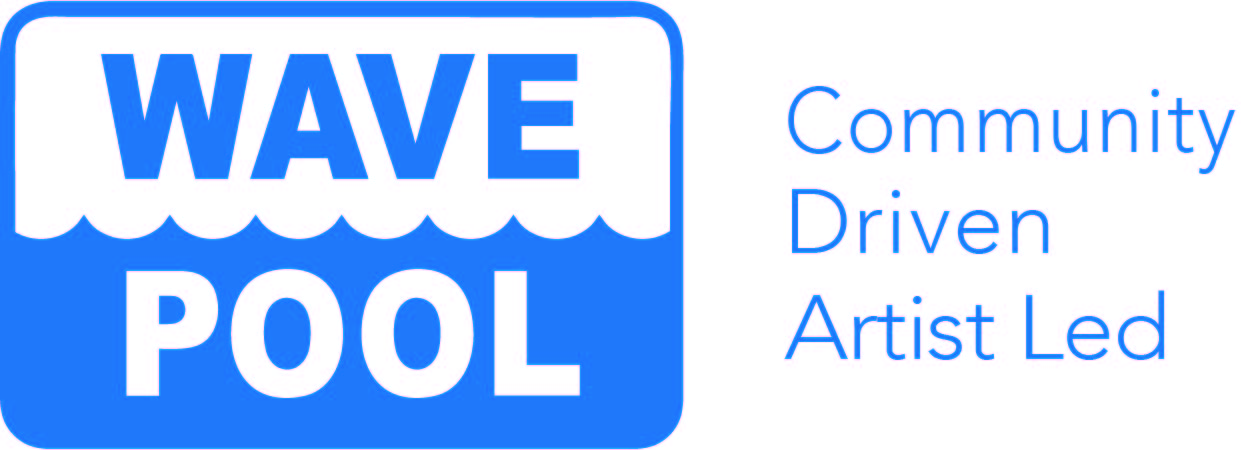A Thousand Words
Justin Maxon, Camp Washington, 2023. Polaroid film, 4½ x 3½ inches. Courtesy of the artist in collaboration with Allonte Hart
Darius Smith, Natalia (2024) Analog photography
How do social practice artists foster a sense of trust and belonging using lens-based practices that do not feel extractive to the communities they’re working in?
A Thousand Words, on view in Wave Pool from September 27 through November 16th, 2024, featured the visual remnants of three lens-based artists who use the camera, embodied research, and ongoing community engagement to tell a story that requires more than capturing a mere snapshot in time.
Curator Statement:
Caring for others is not a thing that Art is supposed to do.
And art history is riddled with examples of artists engaging—specifically with lens-based creative practices—in order to misrepresent Truth for their own personal and socio-political agendas, and without any consideration for the real, potential human consequences.
Thankfully, artists who aim to serve the needs of their communities, rather than rehash demoralizing narratives that only serve a few still exist in this world.
The artists in this show, A Thousand Words were selected because their photographs, audio tracks, and daily practices of being in community reflect the deeper needs of their subjects.
Artists like Darius Smith who works with his community of artists and creatives in Milwaukee, WI, via group mental health circles that serve the needs of BIPOC and LGBTQ+ people in his city. He also believes that, simply documenting the people who historically have been underrepresented in the annals of American visual history, allows them to not only step into their own power, but also places the viewer in the role of witness, in order to honor their personal experiences. For this show, he’s created two powerful portraits of women in his personal circle alongside one-on-one interviews with each about their lives and relationships, inviting the viewer to spend time with their words as well as their image.
Eureka, California-based social practice artist Justin Maxon, returned for a second year this past spring to work with members of the Camp Washington community. By going deep into conversation and connection with people who are precariously supported in the world (often due to issues of addiction, homelessness, and otherwise,) Maxon has been invited into the unadulterated experiences of folks whose stories are often told within the context of trauma and shame rather than acceptance and consideration. While what little support structures of society are crumbling around us, (as they have been for quite a few years now,) artists like Justin have stepped into the arena, implicating us all in our ability to think more expansively about who might be considered a “knowledgeable expert” on a subject, and what kind of skills and expertise are considered valuable in our world going forward.
Rebecca Copper, (Columbus, OH) is an artist working on behalf of land sovereignty and care for our natural world. She has had an ongoing devotional relationship with the many tendrils of the Ohio River and its tributaries for several years, and the photographs she takes are rarely the point of her regular trips to just “sit with the River”. Honoring the work of the Nibi (water) walks, an Indigenous-led extended ceremony to pray for the water, Rebecca knows that action is often far more important than the visual record documenting it. And her photographs of the various spaces she tends to—via offerings as simple as picking up trash or just sitting down to listen—demonstrate her commitment to using photography as a tool for good. This private, ecclesiastic gesture is more than just tending to the land. It is honoring our most foundational relationship: the one we have with our earthly Mother.
As much as it embarrasses me to admit this, I was thinking of the Bread song, “If,” when I named this exhibition.
The lines, “If a picture paints a thousand words / then why can’t I paint you? The words will never show / the you I’ve come to know,” specifically.
It seems to me that—while Art will often never quite meet the moment—we humans in fact, can.
Therefore, artists are those to whom we can and should look, in order to better understand new paradigms for equitable and care-centered bonds—perhaps the whole point of being in relationship to begin with.
-maria seda-reeder



